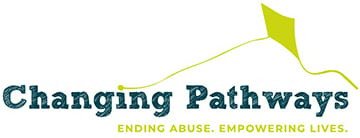When you self-refer to Changing Pathways, you can expect us to contact you within 48 hours of us receiving your referral, though we aim to contact you as soon as possible. We accept referrals from individuals of any gender over the age of 16.
All clients are assessed using the SafeLives Dash Risk Indicator checklist, in line with best practice. This helps us understand your situation, identify immediate needs and create a personalised safety plan. It also helps us to allocate you to the appropriate Changing Pathways case worker.
We have different specialist teams at Changing Pathways, all of which focus on your safety and wellbeing. Depending on your initial assessment, you will normally be allocated a caseworker from either the Outreach, IDVA or Stalking teams. For those going to refuge, you will be allocated a caseworker on site. All our services are free and confidential.
A caseworker will normally contact you once a week. During support sessions, our aim is to understand your needs, help you establish what path you want to take, and assist you in accessing appropriate services to help you get there.
There may be occasions where Changing Pathways are unable to accept you as a client. In these circumstances our practitioners will endeavour to signpost you to an appropriate service.
How We Will Support You
We don’t judge, we believe what you’ve been through, and we help you to regain autonomy by sharing information with you to help you make decisions. The kind of support we might offer may include
– improving your safety by helping you access civil injunctions or to report to the police;
– helping you plan a way out of the relationship safely (or staying safe until you are ready to leave);
– signposting to resources for alternative housing, employment or financial resources
and various other practical and emotional support. If your case appears to have a higher risk attached to it, we work with other agencies to form an integrated approach towards keeping you safe.
Our Departments
We are able to meet with you at a range of community sites or at our main outreach centres in Basildon and Harlow. In addition to meeting in person, we offer a telephone and email support service.
The aim of our service is to provide emotional support and practical assistance, including help to access legal advice, assistance with safety planning, risk assessment, signposting/connection with other agencies, information on rights, legislation and entitlements. Our Caseworkers can support you in documenting your experiences and in reporting to the police if necessary.
If you are assessed as being at medium risk of harm, our highly trained Community-Based Team can provide practical support and advocacy to help you meet your immediate risk and safety needs and set you on a pathway to living a life without fear and abuse. You will be able to speak to someone without judgement and explore your options in a confidential and supportive setting. Our aim is to empower you to understand your situation and make your own decisions. We can help you improve your safety while you are in an abusive situation, or when moving on. We can share information on domestic abuse dynamics, as well as practical information on matters such as civil injunctions, housing resources and financial help.
Our Independent Domestic Violence Advisors (IDVAs) support those with higher safeguarding needs. They can advocate on your behalf with other agencies to keep you and your children safe, working to help to construct and implement personalised plans to ensure your safety. Our IDVA team often works within a multi-agency framework to ensure all the agencies who can help you keep safe understand your situation and are working together to help you.
The Independent Stalking Advocacy Team supports service users who are experiencing stalking. As part of Changing Pathways offer, our service can also support victims who do not have a direct link to the person who is stalking them, such as an acquaintance or colleague. The team can make internal referrals to other teams within our organisation where appropriate, and we can introduce you to partner agencies who may also support an element of your pathway to a new future.
Our Children’s & Young Person’s IDVA Service provides support for children and young people in the region who are currently experiencing domestic abuse. We provide programmes for children aged 13-15, and between 16-18.
If you disclose domestic abuse when you are in a health setting, you will have the option of speaking to one of our Specialist Hospital Practitioners there. The practitioners also provide training to clinicians and health staff and ensure the coordination of support services for victims of domestic abuse.
Our Civil Justice Advocate can talk you through the options available to you in regards to civil injunctions to help keep you and your children safe, and can help you navigate the process.
You can be referred via Compass, the Essex Domestic Abuse Helpline 0330 333 7 444.



